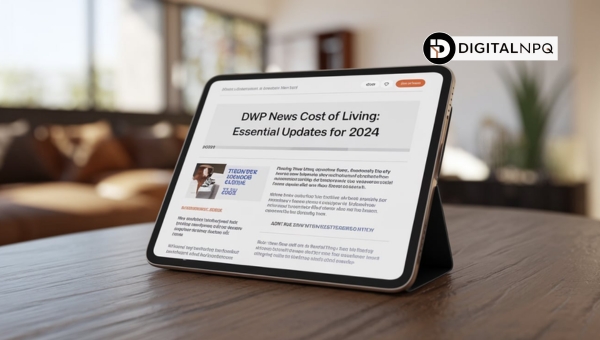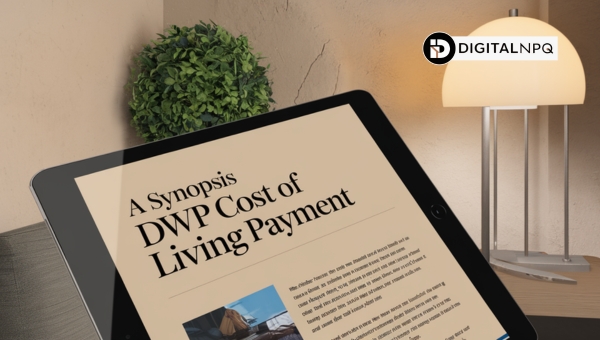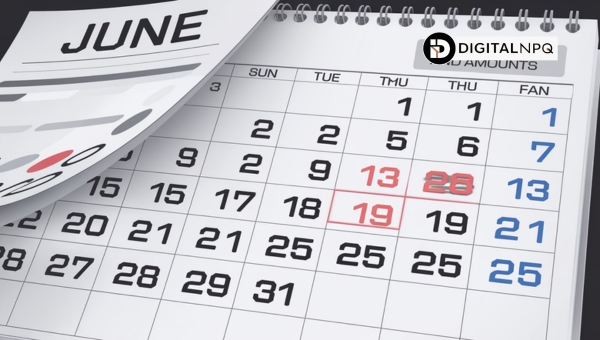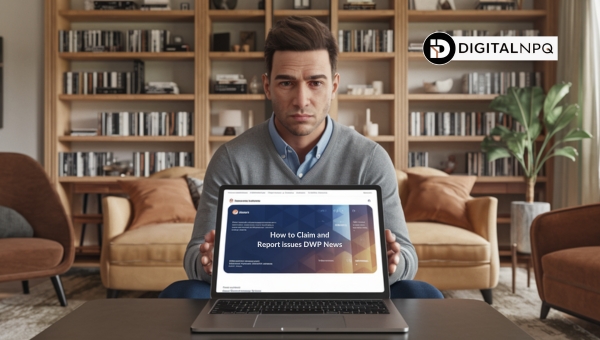DWP Cost of Living: Essential Updates for 2024

The complexities of financial support can be daunting, but understanding the latest updates in the DWP cost of living can make a significant difference. This article delves into everything you need to know about eligibility criteria, payment dates, amounts, and how to claim your benefits.
We’ll also explore additional support schemes available to help you manage your expenses better. Whether you’re seeking to understand your eligibility or simply want to stay informed, we’ve got you covered. Let’s dive in and unlock the vital information that will empower you to make informed financial decisions.
A Synopsis DWP Cost of Living Payment
The DWP Cost of Living Payment is a government initiative designed to help low-income households manage rising living expenses.

This support is crucial for those struggling with the increasing costs of basic necessities. Let’s explore who qualifies for this payment and how you can benefit.
Eligibility Criteria
To qualify for the DWP Cost of Living Payment, you must meet specific criteria. Here’s what you need to know:
- Qualifying Benefits: You must be receiving one of the following means-tested benefits: Universal Credit, Pension Credit, or other specified allowances.
- Payment Periods: You need to be on a qualifying benefit during designated payment periods.
- Benefit Amount: Your benefit should not be reduced to £0 during the qualifying period, except in certain circumstances like receiving hardship payments.
These points outline the basics of who can receive this important financial support. Make sure you check your eligibility to take advantage of this opportunity.
Also Read: Capital One Settlement: All You Need to Know
Payment Dates and Amounts
Understanding the payment dates and amounts for the DWP Cost of Living Payment is crucial for recipients to manage their finances effectively. Here, we will outline when you can expect to receive these payments in 2024 and break down the specific amounts you will receive.

Scheduled Payment Dates for 2024
In 2024, recipients can look forward to receiving their payments on specific dates. This helps in planning your budget and ensuring you have the necessary funds when you need them. The scheduled payment dates for 2024 are as follows:
- £301 Payment: April 25 to May 17, 2024
- £300 Payment: October 31 to November 19, 2024
- £299 Payment: February 6 to February 22, 2024
Mark these dates on your calendar to stay prepared for the incoming funds.
Breakdown of Payment Amounts
Knowing how much you will receive can significantly impact your financial planning. The DWP Cost of Living Payment for the 2023-2024 period totals £900, distributed in three separate payments:
- First Payment: £301
- Second Payment: £300
- Third Payment: £299
Additionally, there is a separate Disability Cost of Living Payment of £150 available for those receiving qualifying disability benefits.
By keeping track of these details, you can better manage your finances and ensure you have sufficient funds to cover your living expenses.
How to Claim and Report Issues?
Navigating the process of claiming the DWP Cost of Living Payment and addressing any issues can seem challenging. Don’t worry, we’ve got you covered with a straightforward guide. Let’s break down the essential steps and what to do if you encounter any problems.

How to Claim the DWP Cost of Living Payment?
Claiming the DWP Cost of Living Payment is designed to be easy for those already receiving qualifying benefits.
Here’s a step-by-step guide to ensure you get your payment without any hassle:
- Check Eligibility: Confirm that you are receiving a qualifying benefit, such as Universal Credit, Pension Credit, or another specified allowance.
- Automatic Payment: If eligible, you do not need to apply separately. The payment will be made automatically to your bank account during the designated periods.
- Update Information: Ensure your contact and bank details are up to date with the DWP to avoid any delays or issues.
- Monitor Payment Dates: Be aware of the scheduled payment dates to know when to expect your funds.
Reporting a Missing Payment
If you have not received your scheduled payment, don’t panic. There are clear steps to follow to resolve the issue promptly:
- Check Your Account: First, verify your bank account to see if the payment has been deposited.
- Review Eligibility: Double-check that you meet the eligibility criteria for the payment period in question.
- Contact DWP: If the payment is still missing, contact the DWP through their official channels. Provide details such as your National Insurance number and the expected payment date.
- Provide Documentation: Be prepared to offer any necessary documents that support your eligibility and help verify your claim.
- Follow Up: Keep track of your communication with the DWP and follow up if necessary to ensure the issue is resolved.
By following these steps, you can ensure that you receive your rightful payments and address any issues promptly and effectively.
Also Read: W9 Form 2024: Essential Guide to New Changes and Compliance
Additional Benefits and Support
Navigating the financial landscape can be challenging, but there are additional benefits and support schemes available to ease the burden. Below, we delve into other financial support programs, extra help schemes, and budgeting advance loans that can provide further assistance.
Other Benefits You Might Be Eligible For
In addition to the DWP Cost of Living Payment, there are several other financial support programs designed to help those facing economic hardship:
- Universal Credit: A monthly payment to help with living costs, available for those on low income or out of work.
- Pension Credit: Extra money for pensioners to help with living costs if they’re on a low income.
- Child Benefit: Financial assistance for those responsible for raising children.
- Disability Living Allowance: Support for those who have extra care needs due to a disability.
- Attendance Allowance: Help for those over state pension age who need assistance with personal care due to a disability.
Extra Help and Support Schemes
Various support schemes may provide additional assistance to those in need. These include:
- Household Support Fund: Provides local councils with funding to assist vulnerable households with essentials.
- Warm Home Discount Scheme: A one-off discount on electricity bills for eligible individuals.
- Winter Fuel Payment: Financial assistance to help cover heating costs during the winter months.
- Cold Weather Payment: Payments to help with extra heating costs during periods of very cold weather.
Budgeting Advance Loans
Budgeting Advance Loans are designed to help individuals on Universal Credit manage emergency expenses. These loans are interest-free and must be repaid within a specified period. Eligibility and amounts are as follows:
- Eligibility:
- Must have been receiving Universal Credit for at least six months.
- Must have earned less than £2,600 in the past six months (£3,600 for couples).
- Must have paid off any previous Budgeting Advance Loans.
- Loan Amounts:
- Up to £348 for single individuals.
- Up to £464 for couples.
- Up to £812 for families with children.
These loans can be used for essential expenses such as household items, clothing, or unexpected costs.
By exploring these additional benefits and support schemes, you can find comprehensive assistance to help manage your living expenses effectively.
Special Categories
Navigating the complexities of financial support can be challenging, especially for those in specific categories such as individuals with disabilities and pensioners.
This section aims to clarify the particular provisions under the DWP Cost of Living Payment scheme for these groups. Whether you are a recipient or a caregiver, understanding these tailored supports can make a considerable difference.
Disability Cost of Living Payment
For individuals with disabilities, the DWP offers a specific cost-of-living payment to help manage additional expenses. This payment is designed to provide extra support and is separate from other benefits.
- Eligibility: Must be receiving qualifying disability benefits.
- Payment Amount: A one-time payment of £150.
- Purpose: To assist with the increased cost of living for those with disabilities.
Pensioner Cost of Living Payment
Pensioners face unique financial challenges, and the DWP has provisions in place to support this group. The pensioner cost-of-living payment is intended to ease the financial burden for older adults.
- Eligibility: Must be receiving Pension Credit or other qualifying benefits.
- Payment Amount: Varies based on individual circumstances.
- Purpose: To help pensioners manage their living expenses amid rising costs.
Understanding these specific categories can help recipients maximize their benefits and manage their financial needs more effectively.
FAQs
Who gets the 780 DWP payment?
The £780 DWP payment is typically provided to individuals receiving certain means-tested benefits like Universal Credit or Pension Credit. Eligibility depends on meeting specific criteria during the designated payment periods.
How much is social welfare in the UK?
Social welfare amounts in the UK vary depending on the benefit type. For example, Universal Credit can range from £265.31 to £498.89 per month for single claimants, with additional amounts for couples and children.
How much will SSI pay in 2024?
The exact payment amount for Supplemental Security Income (SSI) in 2024 hasn’t been finalized yet. However, it is expected to include adjustments for inflation, reflecting the increased cost of living.
Conclusion
In summary, understanding the DWP news cost of living payments can significantly ease financial burdens for eligible individuals. By knowing the eligibility criteria, payment dates, and how to claim, recipients can ensure they receive the support they need. Additionally, exploring other benefits and support schemes can provide further assistance. Staying informed is key to navigating these financial aids effectively.
For more detailed information and updates, be sure to explore other articles on our site. Stay informed and make the most of the available resources!
